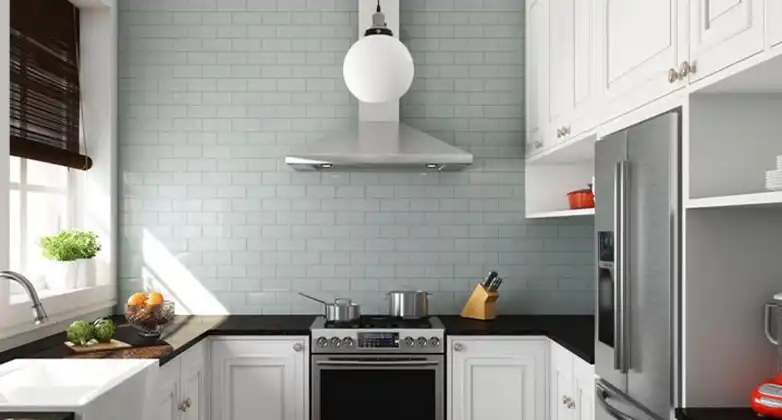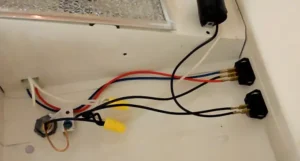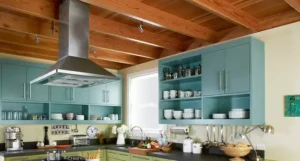Regarding ventilation in the kitchen, a vent hood plays a pivotal role in sustaining optimal air quality and staving off the accumulation of smoke and grease. Nevertheless, a question frequently arises during installation is whether or not a designated circuit is imperative.
The answer is yes – a dedicated circuit is necessary for a vent hood. A dedicated circuit denotes the vent hood as the sole device or electrical element connected to that particular circuit. And this is a crucial factor to consider since vent hoods demand a significant amount of power, and sharing a circuit with other appliances could lead to circuit breakers tripping or, in some dire cases, electrical fires.

Is It Necessary to Have a Dedicated Circuit for the Vent Hood?
If you’re considering adding a vent hood to your kitchen, you might be curious whether it requires a dedicated circuit. The simple answer is yes – to ensure safe and efficient operation, a vent hood generally needs an electrical circuit not shared with other appliances or outlets in your kitchen. We’ll explore why a dedicated circuit is crucial for vent hoods and provide you with the essential information you should know before installing one. So, let’s get started!
Vent hoods typically require a dedicated circuit. There are several reasons why:
A dedicated circuit is typically necessary for a vent hood for various reasons. A vent hood, a range hood, or an exhaust hood is a crucial kitchen appliance that eliminates smoke, steam, and cooking odors from the air. Electrical considerations must be considered when installing the device to ensure its safe and efficient operation. This discussion will explore why a dedicated circuit is typically required for a vent hood.
Reason 1. Power Requirements:
Vent hoods often require significant power, especially if they have built-in lighting, multiple fan speeds, or other features. A dedicated circuit ensures the hood can access all the power it needs without overloading other circuits in your home. If the hood shares a circuit with other appliances, the combined power draw could exceed the circuit’s capacity, leading to overheating and other dangerous conditions.
Reason 2. Safety:
Sharing a circuit with other appliances can create the risk of electrical overload and other safety hazards. A dedicated circuit for your vent hood helps prevent these risks and ensures the hood operates safely. Overloading a circuit can cause breakers to trip or fuses to blow, which can be a fire hazard if not addressed properly.
Reason 3. Building Codes:
It’s common for building codes to mandate that vent hoods have exclusive circuits in various regions. This requirement guarantees that the hood functions correctly and doesn’t jeopardize the home’s or its inhabitants’ safety. Adhering to building codes is crucial as they are implemented to ensure the well-being of a residence and its occupants.
Reason 4. Efficiency:
Installing a specialized electrical circuit for your ventilation hood can significantly enhance efficiency. By guaranteeing that your hood has unrestricted access to power, you can minimize energy wastage and reduce your monthly utility costs. Moreover, the efficient operation will also extend the lifespan of your ventilation hood and necessitate fewer repairs.
Reason 5. Convenience:
Having a dedicated circuit for your vent hood means you won’t need to worry about tripping breakers or reset circuits every time you use it. And this can make cooking and meal preparation much more convenient and hassle-free. You can focus on cooking without worrying about electrical issues.
Reason 6. Longevity:
When you use the same electrical circuit for your vent hood as other appliances, it can cause damage to the hood’s electrical parts. This damage can lead to the hood breaking down earlier than expected. However, having a separate circuit just for the vent hood can prevent this wear and tear and ultimately make it last longer. Ultimately, investing in a longer vent hood is a wise choice that can save you money on repairs or replacements.
Reason 7. Home Value:
Incorporating a specialized circuitry system for your ventilation hood can significantly enhance the worth of your abode, particularly if you intend to sell it later. Prospective buyers are frequently amenable to shelling out a higher price for furnished dwellings with up-to-the-minute, secure, high-performing appliances. Thus, allocating resources towards this undertaking would be commendable, as it can pay off your property’s overall valuation.
Reason 8. Noise Reduction:
A dedicated circuit for your vent hood can help reduce the noise level in your kitchen by ensuring that the hood operates at its full capacity. And this can do cooking and entertaining more pleasant for you and your guests. The reduced noise level can also make communication easier while you’re cooking.
Reason 9. Customization:
Opting for a dedicated circuit allows you to select the most fitting circuit type and capacity for your ventilation hood. And this empowers you to personalize your arrangement to match your necessities and desires. Personalization can result in an enhanced culinary journey altogether.
Reason 10. Compliance:
Installing a dedicated circuit for your vent hood helps ensure you comply with local electrical codes and regulations. And this can help you avoid fines and other penalties resulting from non-compliance. Compliance is important to avoid safety hazards and have peace of mind when cooking.
Frequently Asked Questions And Answers
Can I Install a Vent Hood Without a Dedicated Circuit?
While it’s feasible to set up a vent hood sans a separate circuit, especially for a less potent model and when the electrical framework has sufficient capacity, installing a dedicated circuit for safety purposes is typically advisable.
How Do I Know If My Vent Hood Requires a Dedicated Circuit?
The instructions provided by the manufacturer should indicate whether a dedicated circuit is necessary. If you need more clarification about this requirement, it’s advisable to seek the guidance of a licensed electrician, who can assess your electrical system and provide a suitable recommendation.
Conclusion
In conclusion, setting up a designated circuit for your vent hood is advisable. And this will ensure the vent hood functions safely and efficiently without triggering any electrical complications or dangers within your dwelling. Even though it may entail extra expenses for installation, it is a wise investment to ensure your family’s safety. It is better to be precautious than regretful regarding electrical devices, so seek the assistance of a licensed electrician to ensure that your vent hood is installed and linked to a designated circuit appropriately.

![Read more about the article Should Backsplash Go Behind Range Hood? [Beneficial Tips]](https://kitchenhoodcare.com/wp-content/uploads/2023/09/Should-Backsplash-Go-Behind-a-Range-Hood-300x161.webp)

